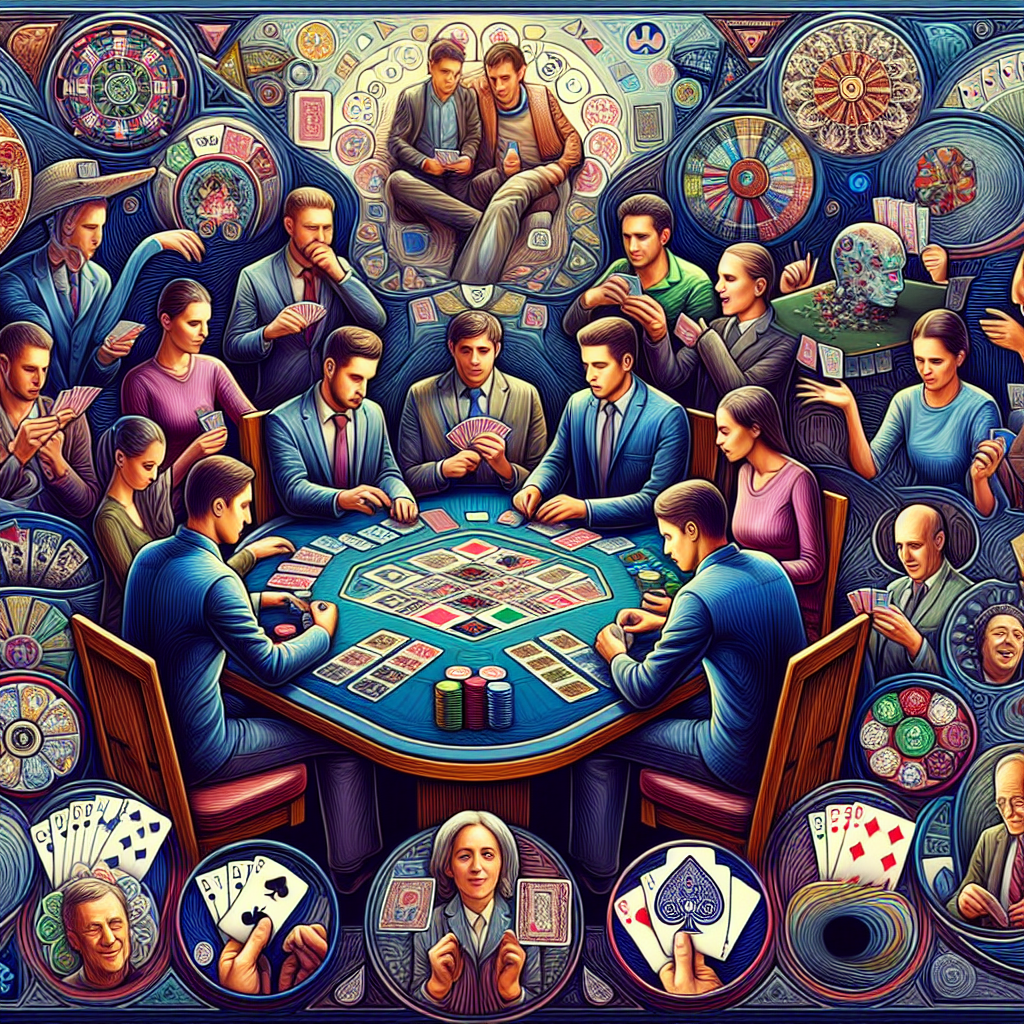The Psychology of Card Games: Strategy, Luck, and Social Interaction
Card games have been a staple of entertainment across cultures for centuries, engaging participants in a unique blend of strategy, luck, and social interaction. Beyond their recreational value, they offer a fascinating glimpse into human psychology and behavior. From classic games like Poker and Bridge to modern card-based games like Magic: The Gathering and Cards Against Humanity, the allure of cards lies not just in the play itself but in the intricate psychological dynamics they evoke. This article explores the psychological underpinnings of card games, focusing on strategy, luck, and the social interactions they foster.
Strategy: The Mind Game
At the heart of many popular card games is strategy. Players must analyze their hand, anticipate opponents’ moves, and make decisions that maximize their chances of winning. Strategic thinking in card games involves several cognitive processes:
Problem Solving
Players are often faced with complex problems requiring critical thinking and decision-making skills. They must assess the probability of different outcomes based on the cards in their hand, the cards exhibited by other players, and the actions they have taken thus far. The situation is compounded by the knowledge of the game’s rules, which players must navigate to devise optimal strategies.
Risk Assessment
Many card games involve a delicate balance between risk and reward. Players must weigh the potential benefits of aggressive plays against the likelihood of incurring losses. This aspect of card play is not just mathematical; it also taps into emotional intelligence, as players must manage their own urges and instincts while reading the emotions and behaviors of others. This is particularly evident in games like Poker, where bluffing plays a crucial role in strategy.
Emotional Regulation
Strategic card games require a high degree of emotional regulation. Players must remain calm under pressure, especially when stakes are high. Managing frustration after unfavorable draws or remaining composed while bluffing requires emotional control and resilience. This psychological component underscores the importance of mental toughness in competitive play.
Luck: The Role of Chance
While strategy is pivotal in card games, luck is also a significant factor. The randomness of card distribution introduces an element of chance that can dramatically alter the outcome. This interplay between strategy and luck leads to interesting psychological phenomena:
Cognitive Dissonance
Players often grapple with cognitive dissonance when outcomes seem unfairly swayed by luck. A skilled player might find themselves consistently losing to a novice who happens to draw better cards. This discrepancy can lead to frustration and can even diminish the enjoyment of the game, prompting players to reflect on the balance between skill and chance in determining success.
Attribution Theory
Players frequently attribute their successes and failures to either skill or luck. Those who believe they control their fate may persist with strategic improvements, while others who blame luck may become disheartened or disengaged. Understanding how players perceive luck can shed light on their motivation and persistence in the game.
Social Interaction: The Human Element
Card games facilitate social interaction in ways that reinforce group dynamics, relationships, and communication.
Building Relationships
Playing card games often serves as a bonding activity. Whether with friends or family, the shared experience of gaming creates opportunities for laughter, competition, and cooperation. The social interactions inherent in card games can strengthen relationships as players navigate the complexities of winning, losing, and collaborating, sometimes leading to deeper connections.
Social Cue Recognition
Successful card players must become attuned to the social cues of their opponents. Facial expressions, body language, and verbal communication all provide insights into an opponent’s strategy or emotional state. The ability to read these cues can become a significant advantage, underscoring the importance of social intelligence in card games.
Conflict and Cooperation
The competitive nature of many card games can lead to conflict, yet they also provide an arena for negotiation and cooperation. In games like Hearts or Spades, players may work together to achieve a common goal, even if they are technically competing against one another. This duality can offer profound insights into human nature, reflecting broader societal interactions.
Conclusion
The psychology of card games is a rich tapestry woven from the threads of strategy, luck, and social interaction. Players engage not just in a battle of wits but also delve into the depths of human behavior, emotional regulation, and relationship dynamics. As card games continue to evolve and attract new enthusiasts, their role in understanding psychological principles through play remains significant. Ultimately, whether one is drawn to the strategic intricacies, the thrill of chance, or the social connections, card games will continue to captivate players and psychologists alike, offering endless opportunities for exploration and insight into the complex world of human interaction.




